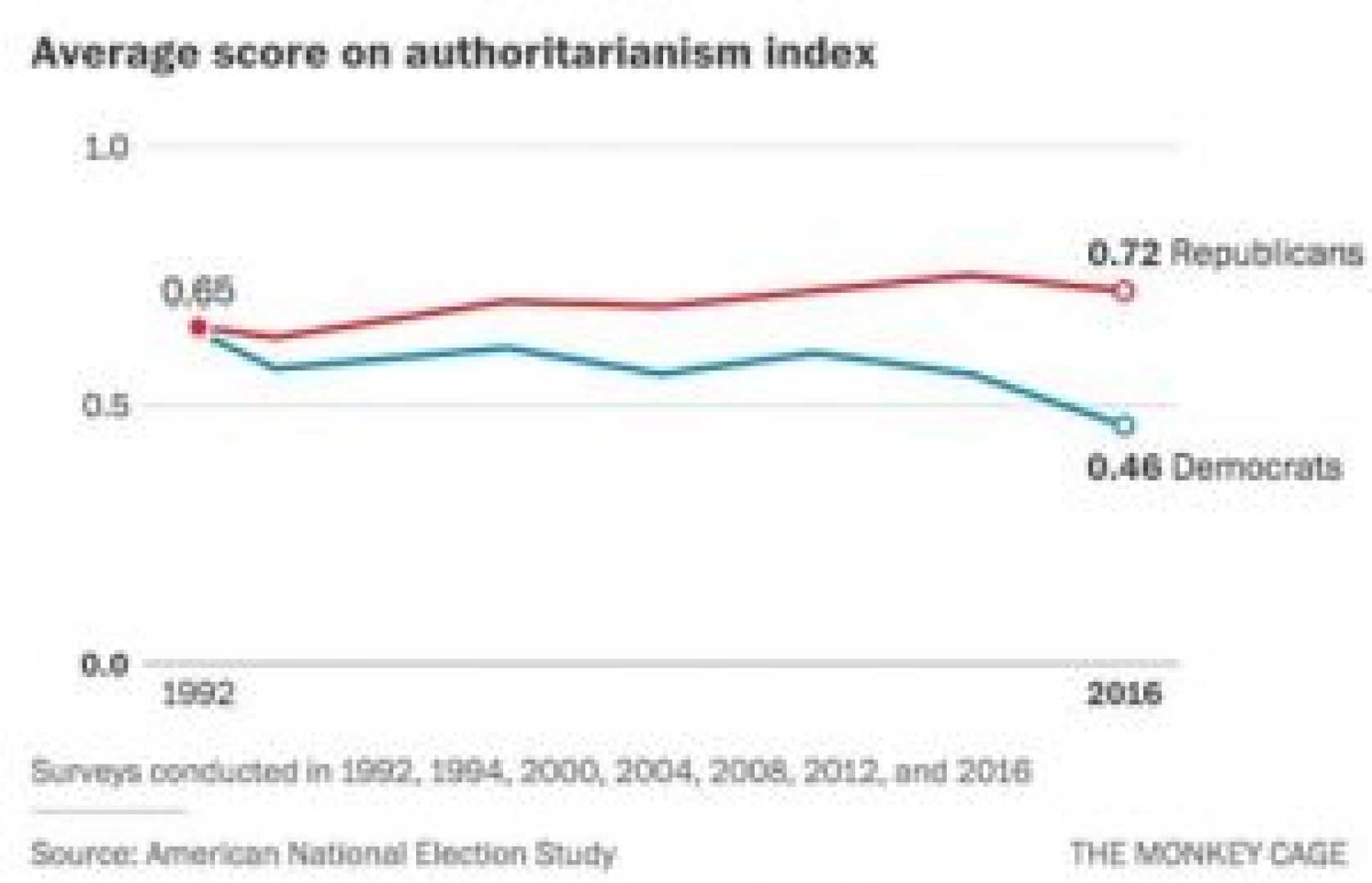Politics
Scholars Warn U.S. Sliding Toward Authoritarianism Amid Political Turmoil

WASHINGTON — A recent survey conducted among more than 500 political scientists reveals that an overwhelming majority believe the United States is in a rapid decline from liberal democracy toward authoritarianism. The survey, known for its critical assessments of democratic performance, shows a significant drop in ratings of American democracy since the election of President Donald Trump.
Initially rated at 67 out of 100 in November, scholars lowered their score to 55 just weeks into Trump’s second term. John Carey, a professor at Dartmouth and co-director of Bright Line Watch, calls this decline a “precipitous drop,” emphasizing a growing consensus among scholars that the nation is moving in the wrong direction.
The survey evaluated 30 indicators of democratic performance, such as government interference with the press and the ability of legislative and judicial branches to check executive power. Although not all political scientists share the alarm, many like Carey express significant concern regarding Trump’s early actions as president.
According to a Harvard government professor, who preferred to remain unnamed, the shift toward authoritarianism is evident but still reversible. “We are no longer living in a liberal democracy,” he stated, drawing parallels to competitive authoritarian regimes seen in countries like Hungary and Turkey.
Political scientists warn that competitive authoritarianism allows leaders to undermine democratic norms while still holding elections, creating an electoral environment that favors the ruling party. In Trump’s case, the call for lowering standards of free and fair elections is alarming, another scholar noted.
While most scholars see Trump as a troubling force for democracy, a minority, such as a retired political scientist from the University at Buffalo, argues that Trump’s approaches are legitimate efforts to address prolonged issues in American economy.
Campbell, an advocate for Trump’s policies, points out the administration’s use of tariffs to revitalize U.S. manufacturing, stating, “I think they’ve done an excellent job.” He attributes some scholarly resistance to Trump’s strategies to political biases against him.
Critics continue to highlight tactics reminiscent of authoritarian regimes. They point to how Trump’s Federal Communications Commission is targeting media companies perceived as unflattering to his administration. Princeton‘s Kim Scheppele draws parallels to Hungary’s Viktor Orbán, noting that similar tactics have been employed to suppress dissenting voices.
Despite the survey’s grim findings, some scholars still argue that America’s checks and balances can withstand any autocratic tendencies the administration may exhibit. Political scientist from the University of Texas at Austin asserts that lower courts have effectively checked Trump’s power so far.
In a political climate where public opposition to the government may carry risks, this ongoing study by Bright Line Watch seeks further insight into the state of democracy in the U.S. Carey anticipates a further downgrade in America’s democratic score in the impending survey.












